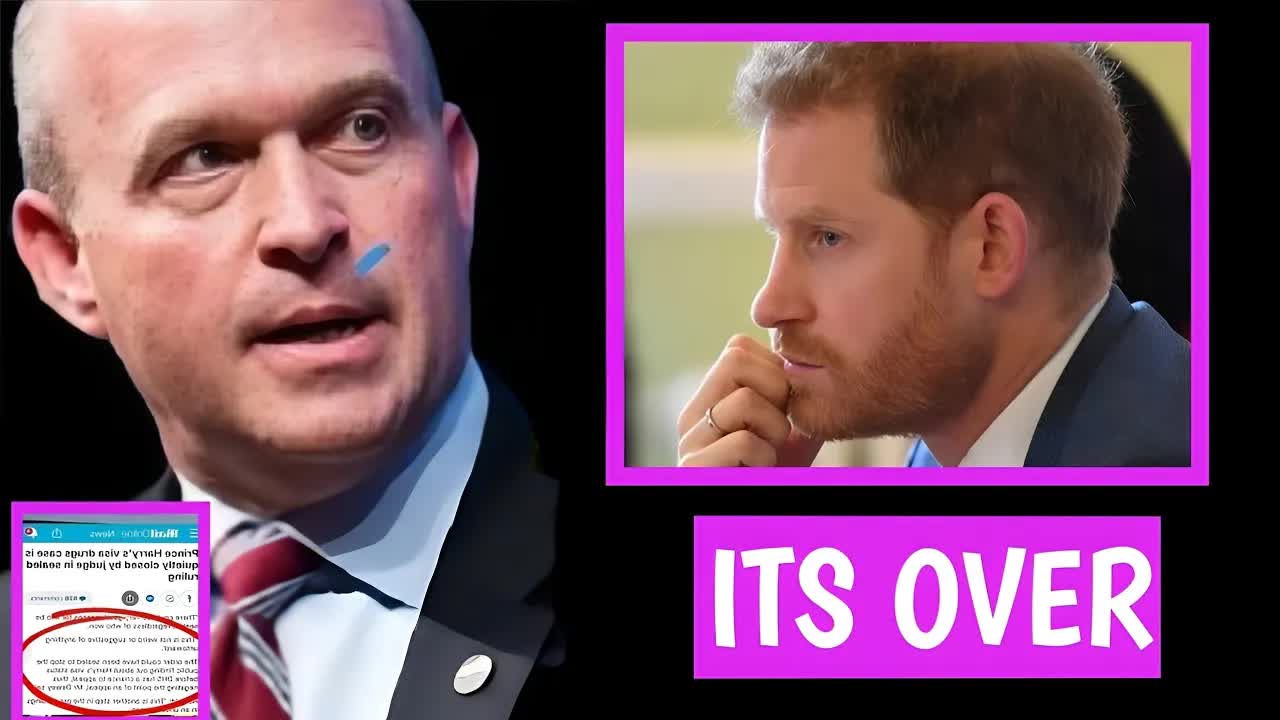Must Read
Legal Storm Brews Over Prince Harry’s Visa Status: Heritage Foundation Calls It a Fraud
In a dramatic twist that has caught the world's attention, a lawyer representing the Heritage Foundation has thrown Prince Harry's visa status into question, labeling the entire affair as fraudulent.
This bold claim not only casts doubt on the Duke of Sussex's legal standing in the United States but also sparks a heated debate about immigration, celebrity privilege, and the obligations that accompany high-profile lives.
As this saga unfolds, one can't help but ponder the ramifications for Prince Harry, his family, and the broader implications for immigration discourse in America.
Prince Harry, the younger son of King Charles III and the late Princess Diana, made headlines when he and his wife, Meghan Markle, chose to step back from their royal duties and relocate to California.
Since their move, the couple has engaged in various pursuits, from philanthropic initiatives to lucrative partnerships with streaming services.
However, their transition from royal life to Hollywood has not been without its fair share of controversies, particularly surrounding their immigration status.
Speculations about the couple's visa status have swirled since their arrival in the U.S. Did they enter the country legally?
What type of visa do they possess?
These lingering questions have resurfaced following the Heritage Foundation's recent legal challenge.
The conservative think tank has taken a keen interest in scrutinizing immigration policies, and their lawyers are now demanding proof regarding Prince Harry's visa status, claiming that he misrepresented himself during the immigration process.
The implications of this assertion are significant.
If it turns out that Prince Harry entered the U.S. under false pretenses, he could face severe legal consequences, including the possibility of deportation.
The accusation that his visa case is fraudulent not only calls into question his integrity but also raises concerns about whether he used his royal background to bypass standard immigration protocols.
To grasp the seriousness of this situation, it's crucial to understand the complexities of the U.S. immigration system.
Various visa categories exist to accommodate different circumstances, and for high-profile individuals like celebrities, the O-1 visa—designated for those with extraordinary abilities in their respective fields—is often the route taken.
If Prince Harry did secure an O-1 visa, he would need to demonstrate his significance in a particular area, which, given his royal lineage and public persona, might not be overly challenging.
However, any implication that he obtained this visa through dishonest means could lead to intense scrutiny and potential legal repercussions.
Public reaction to the Heritage Foundation's claims has been decidedly mixed.
Supporters of Prince Harry assert that he deserves the same rights as any other resident and argue that focusing on his visa status distracts from more pressing immigration issues.
They advocate for fair treatment of individuals, regardless of their fame or background.
On the flip side, critics contend that public figures should be held to a higher standard, especially when there are perceptions of using their status for personal advantage.
This perspective gains traction in a climate where many believe immigration laws are already stretched thin.
The implications of this legal challenge extend well beyond Prince Harry himself.
The case brings to light several critical issues in the ongoing conversation about immigration in the United States.
It raises questions about how high-profile individuals are treated compared to ordinary citizens and whether celebrity status provides any leeway in legal matters.
Additionally, if the Heritage Foundation's demands for evidence are met and the situation escalates, it could set a precedent that influences how the immigration statuses of other public figures are examined in the future.
As this legal drama unfolds, the royal family's response—or lack thereof—has also become a topic of discussion.
Traditionally, the royal family has opted for neutrality in political matters.
However, considering the personal nature of this case, one must wonder how far they are willing to go to defend one of their own.
The stakes are undeniably high, not just for Prince Harry but for the broader implications of celebrity immigration cases.
This controversy may very well reshape perceptions of how immigration laws apply to those in the public eye.
As the narrative develops, the intersection of fame, privilege, and legal accountability continues to captivate audiences worldwide.
With so much at play, it remains to be seen how this situation will resolve and what it will mean for Prince Harry and others who navigate the complexities of immigration as high-profile individuals.








































